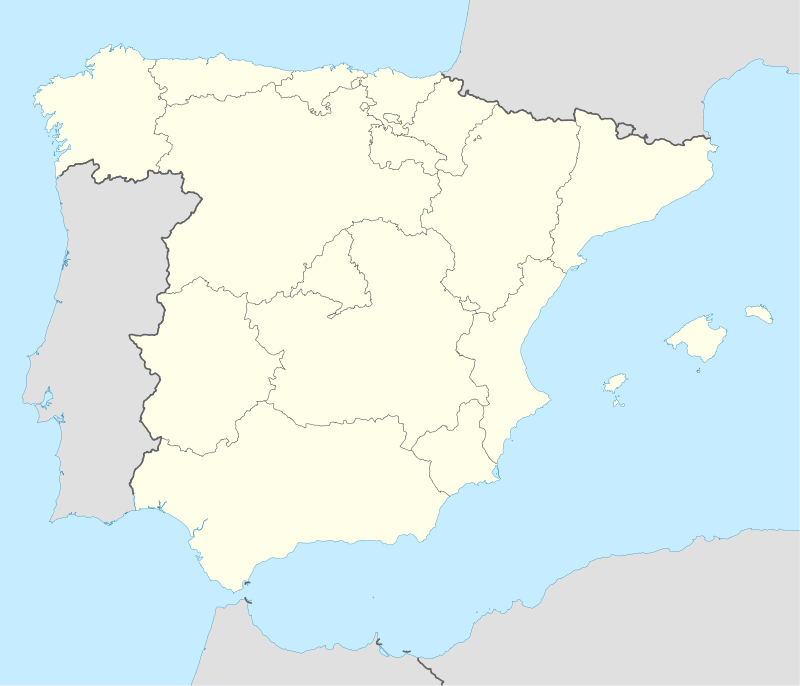Plans for Winter Olympics held in Barcelona
Barcelona hopes to host the Winter Olympic Games in 2026. Barcelona is the second largest city of Spain and the capital of the autonomous community of Catalonia. Parts of the Games would also take place at La Molina, a mountain resort in the Pyrenees. A bid was considered for the 2022 Olympics, but mayor Xavier Trias concluded that the city was not yet prepared after being told so by the IOC, stating that one "must concentrate its efforts and commitment to work to reach the Olympic target by 2026."[1] Barcelona previously hosted the 1992 Summer Olympics.
History
On January 13, 2010, then-mayor Jordi Hereu announced his intention to nominate Barcelona as organizer of the 2022 Winter Olympic Games. Hereu said that Barcelona should have the opportunity to organize the Games because the city had enough equipment, as well as the legacy of having hosted the 1992 Summer Olympics. The mayor, who had all the municipal groups in his favor, designated Enric Truñó as the commissioner responsible for the candidacy. In 2011, a political change in the Barcelona City Council designated Xavier Trias the new mayor of the city. Trias preserved Truñó as the commissioner.
On May 20, 2010, the Council convened the Territorial Council (Consell Territorial). This Council represents ten regional councils, ten regional capitals, nineteen municipalities with ski resorts, the presidents of provincial councils of Lleida, Girona and Barcelona, and representatives of the Government of Catalonia (Generalitat de Catalunya). The Territorial Council is the piece that makes possible the territorial support for the Olympic Project. It also provides updates on all the advances of the candidate to the local institutions of the Catalan Pyrenees.
On September 15, 2010, the Technical Office presented the candidature. In 2011, the mayor Trias spoke of his willingness to continue working on the project because "it is a big opportunity for Barcelona, and even more for all Spain". The Technical Office of the candidate is working on a preliminary bid proposal and investigating the viability of the project. The candidate must be assessed for the municipal government, and approved for the Directive Commission.
Management bodies
The highest governing body of the bid is the Steering Committee, which is composed of representatives from the City Council, the Generalitat of Catalonia, the regional deputation of Girona, Lleida and Barcelona, the Syndif of Aran, the towns of Lleida, Puigcerda, Seu d'Urgell, Sort, Tremp, Vielha and Mijaran, the presidents of the Union of Sports Federations of Catalonia (UFEC), the Catalan Federation of Winter Sports (FCEH), the General Council of Chambers of Commerce of Catalonia, and the Catalan Association Stations of Mountains (ACEM).[2]
The Regional Council is the representative body of the territorial application. The Regional Council's duties include sharing the progress of the project with all the local institutions representing the Pyrenees. It is composed of fifty institutional representatives, which include the presidents of Catalan Councils in the Pyrenees, the mayors of regional capitals in the Catalan Pyrenees, and twenty mayors of municipalities with winter sports facilities.
In addition to these two organizations, the bid also has several advisors from committees such as the Sports, Athletes, Paralympic, and Sustainability.
2022 bid file
Over the course of three years, the Technical Office (Oficina Tècnica) has prepared the "Bid File" to be submitted to the Spanish Olympic Committee to study the viability of the event. The Spanish Olympic Committee, who is the ultimate Spanish Olympic authority, has to ratify the bid and present Barcelona’s aspiration to the International Olympic Committee. In the bid, all aspects of the Candidature are analyzed in depth.
These Winter Olympic Games would be two-pronged, with Barcelona as the organizer of ice sports and the Pyrenees organizing the mountain sports. The Olympic Villages in Barcelona would be located in Marina del Prat Vermell (Zona Franca), and in Cap de Comella in the Pyrenees.
For the competitions, Barcelona would use most of the Olympic venues of 1992 Barcelona legacy: the Palau Municipal d’Esports, the Velòdrom Municipal d’Horta, the Palau Sant Jordi and the Estadi Olímpic Lluís Companys. The new Palau de Gel Blaugrana, which FC Barcelona will build, will also be used. The only building to be constructed is the Anell de Velocitat located in Zona Franca. In the Pyrenees, the competitions would be held in Masella, in the ski stadium called Estadi, and in La Molina, in Pla de les Forques, Estadi Barcelona, Estadi Fontcanaleta and in Estadi Pla d’Anyella.
Gallery
-
La Molina ski resort in Pyrenees
-
2013 IPC Alpine World Championships - Giant Slalom race at La Molina
-
2013 IPC Alpine World Championships at La Molina
